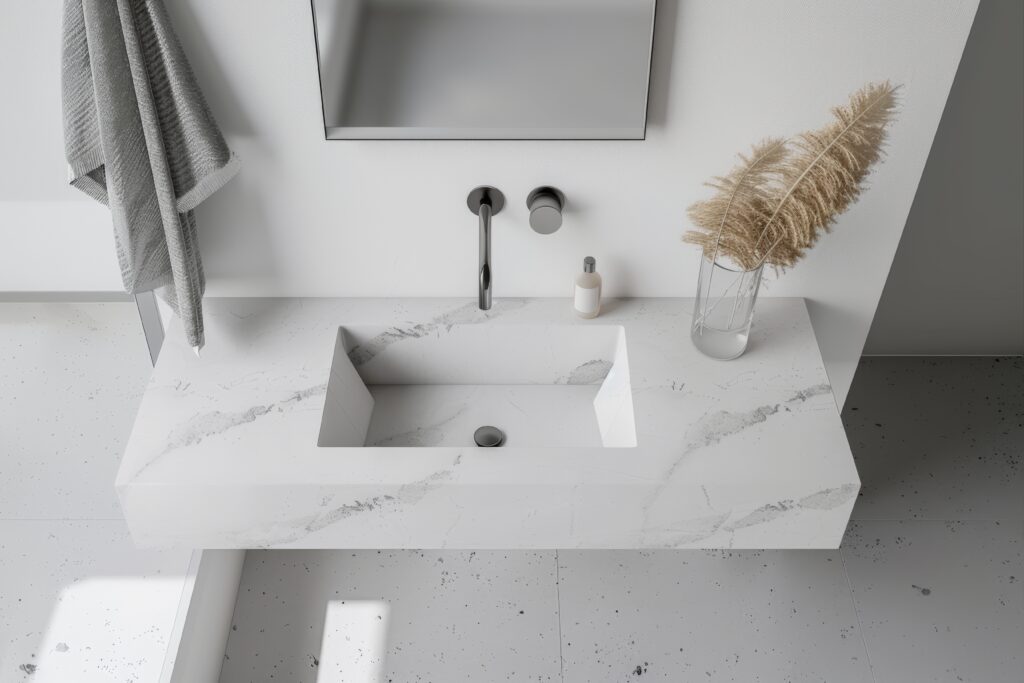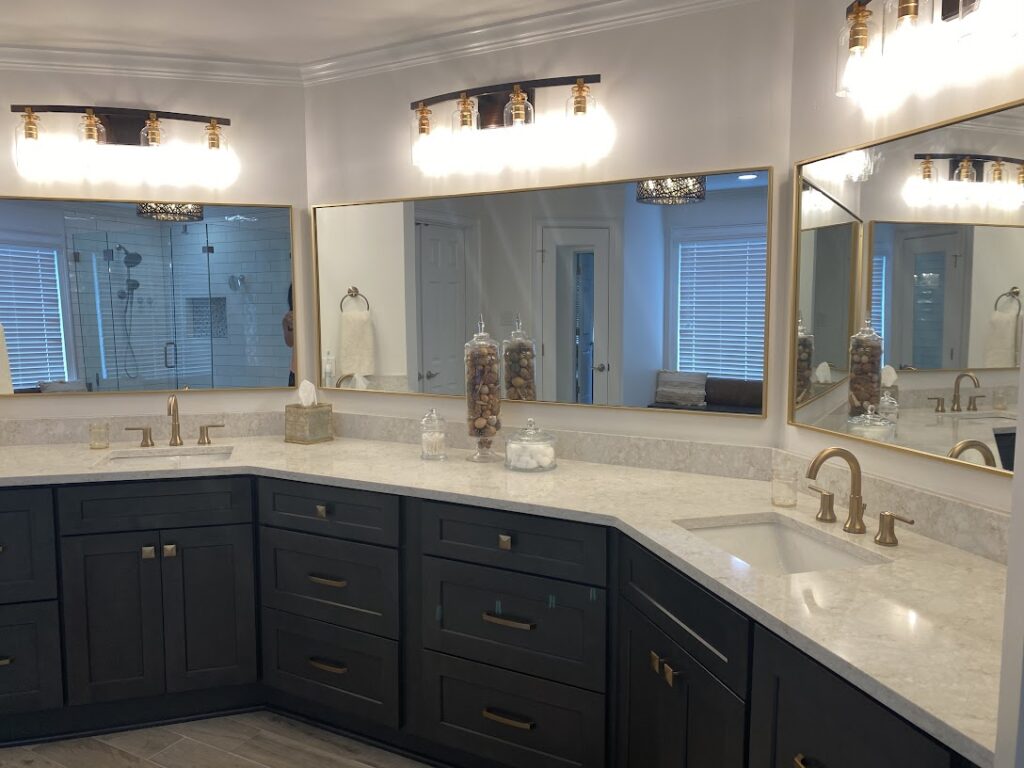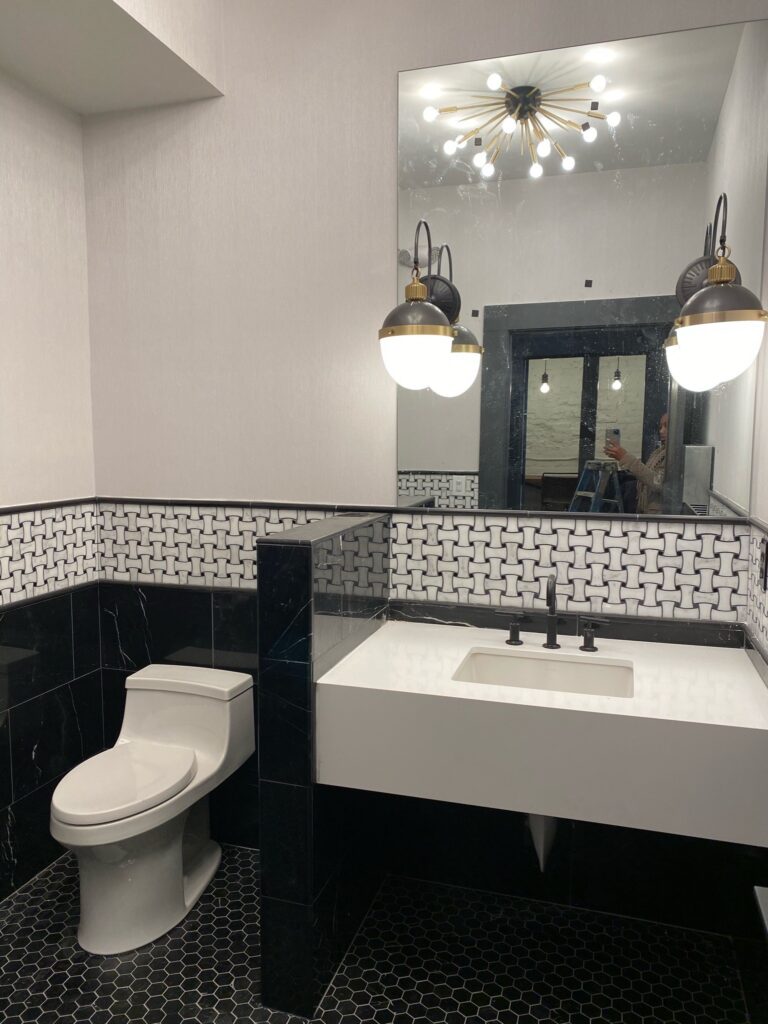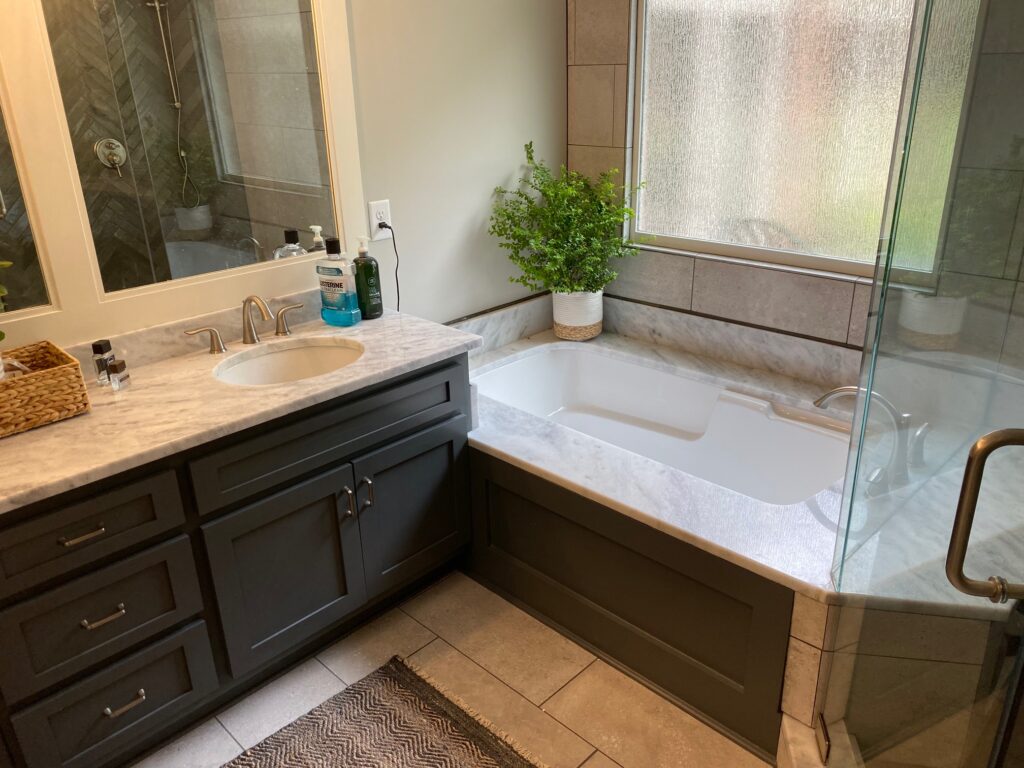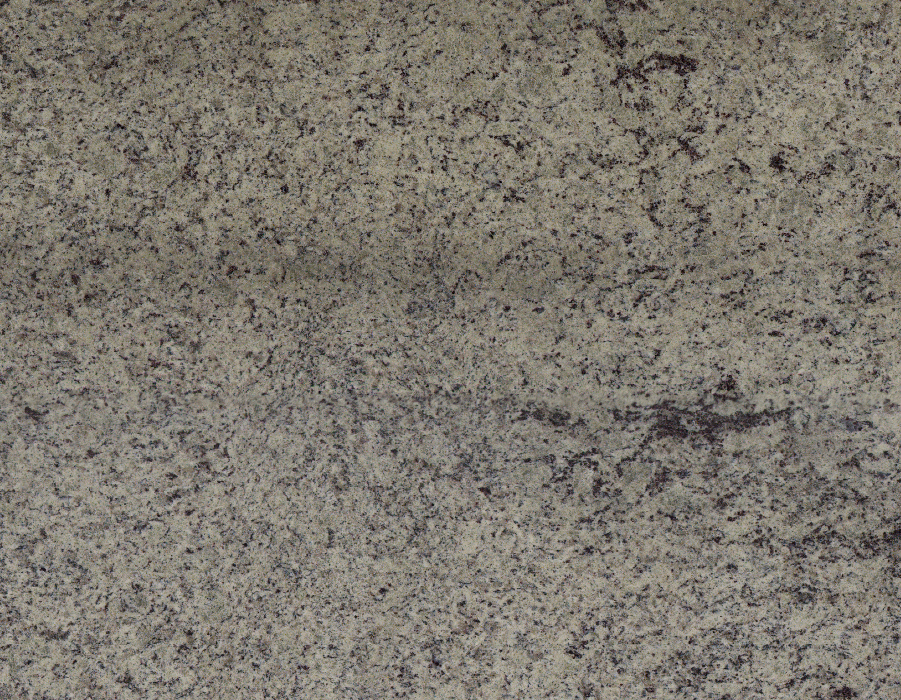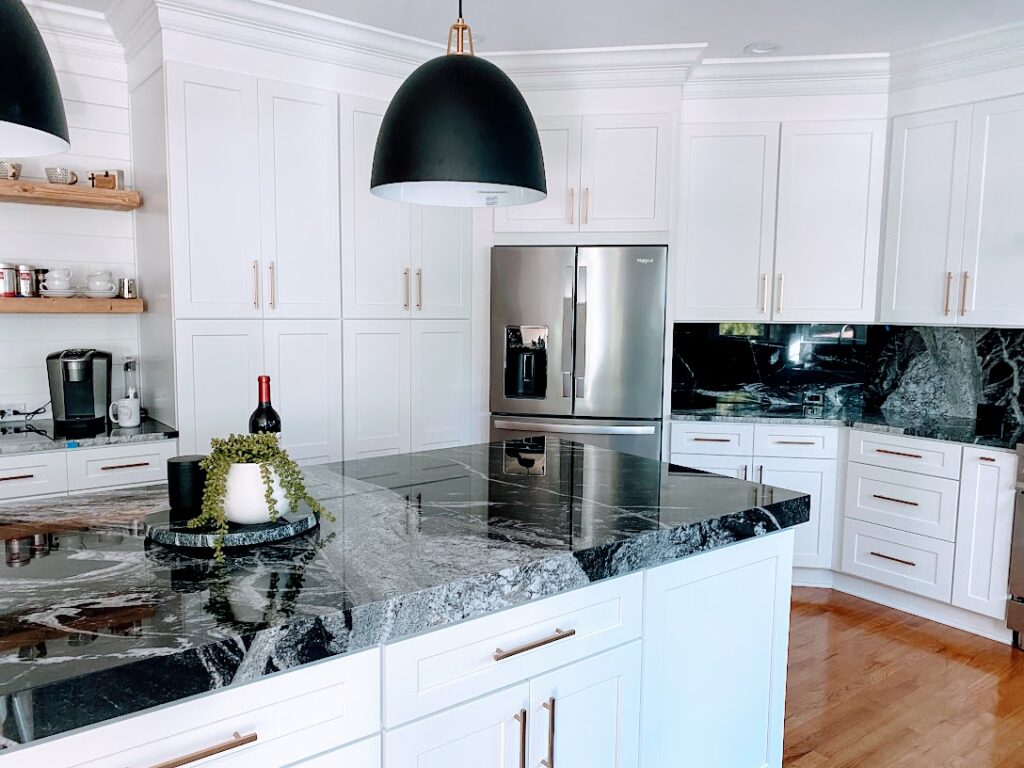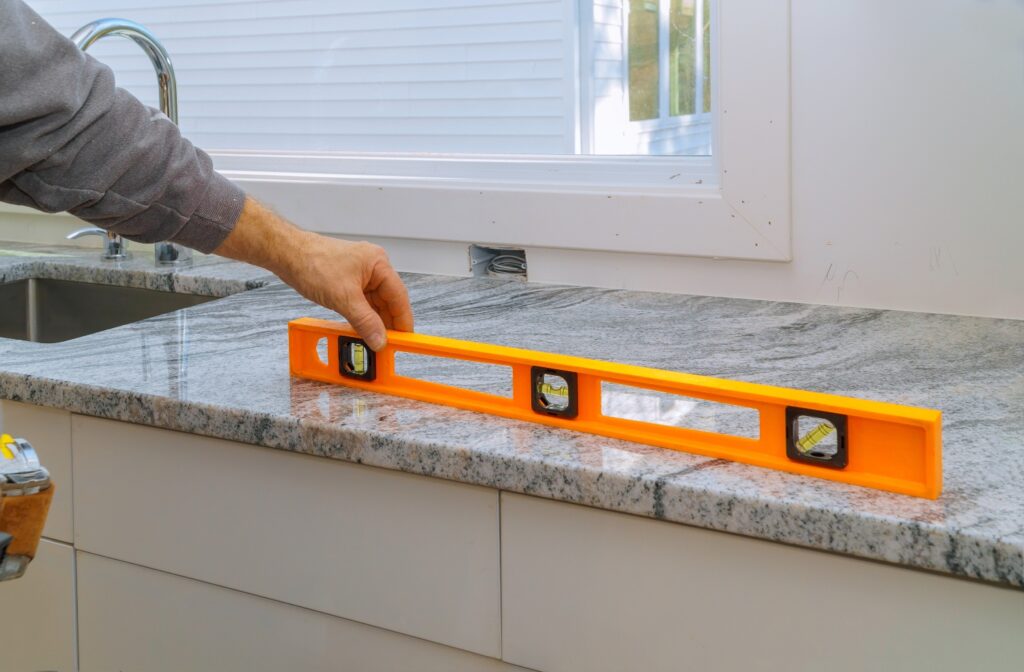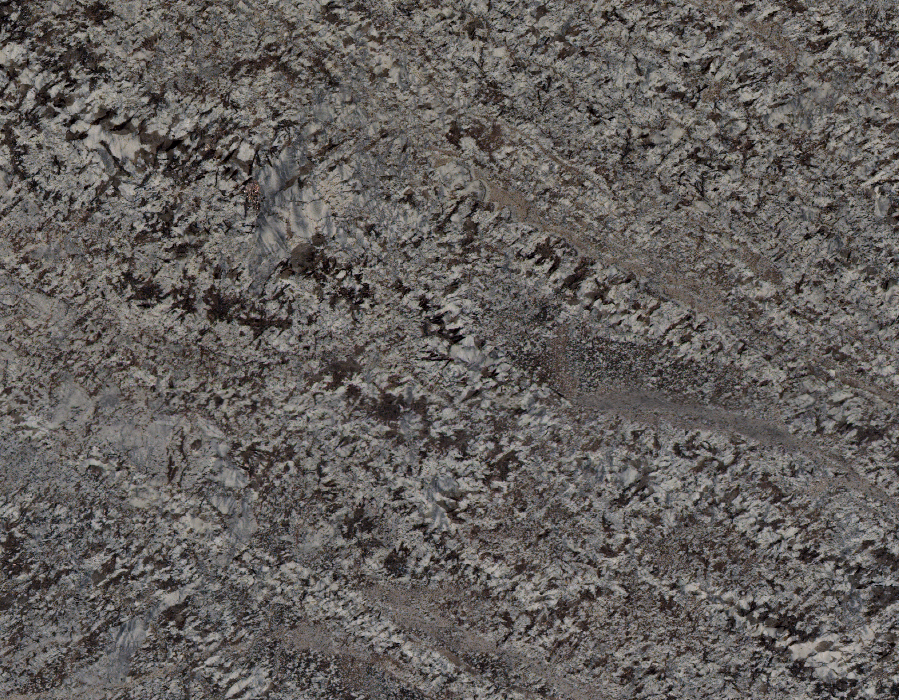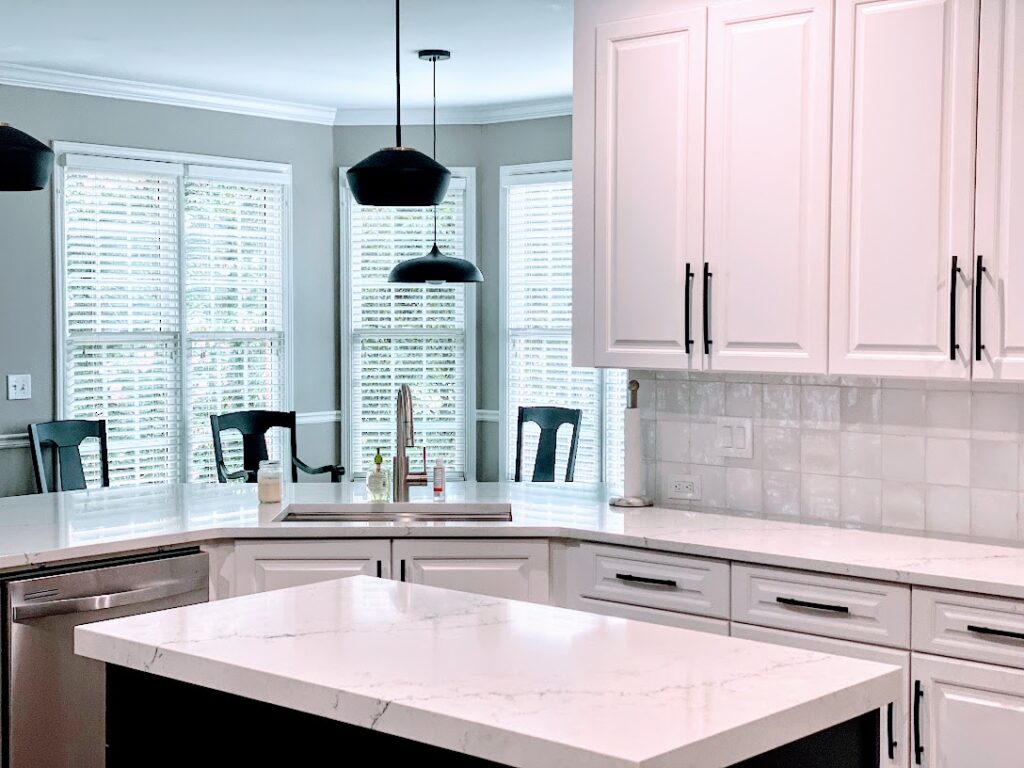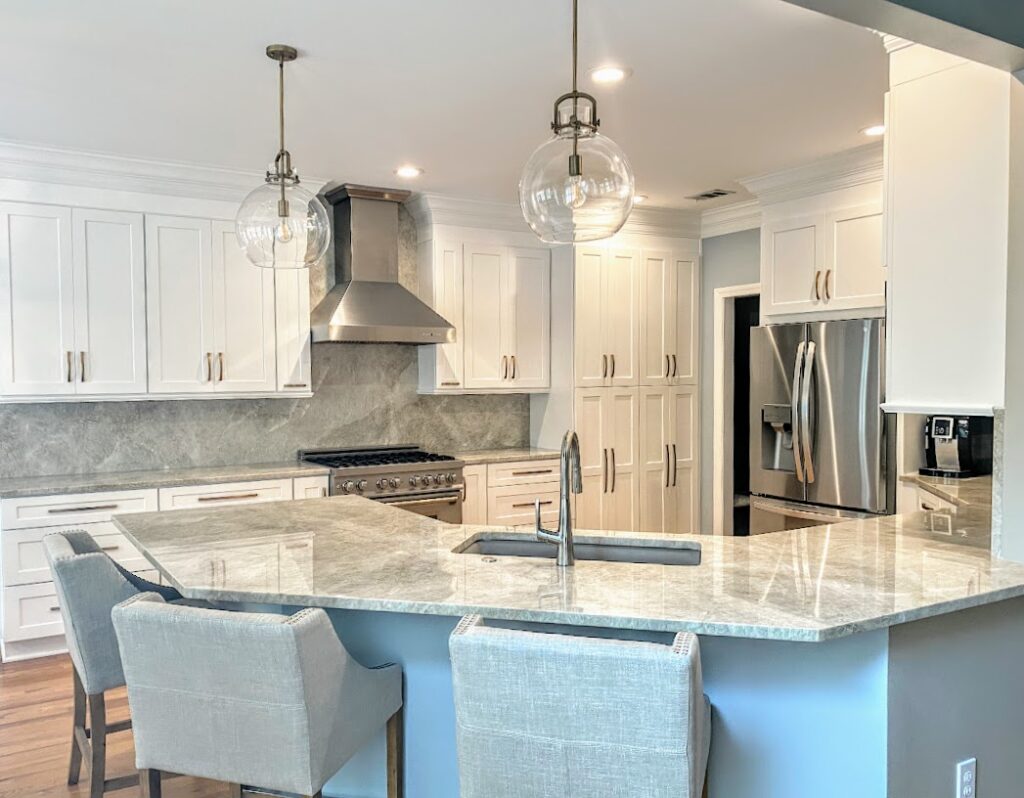Granite Countertops Vs. Quartz Countertops
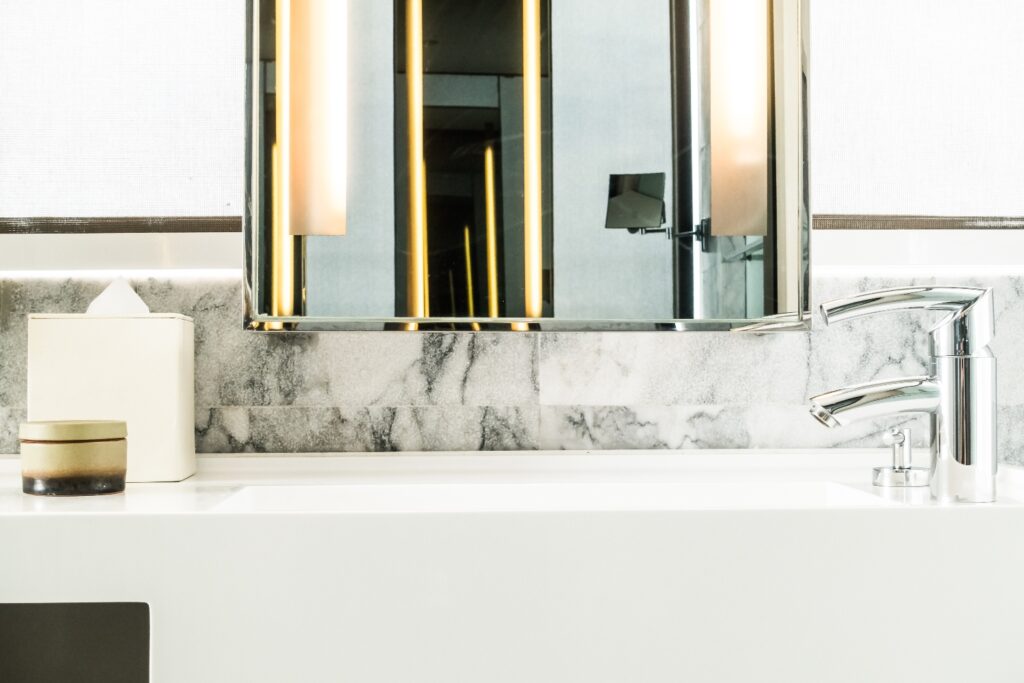
When choosing between granite and quartz countertops, it’s crucial to weigh factors like durability, maintenance, and aesthetics. Granite offers a natural, earthy allure with unique patterns but requires regular sealing to maintain its charm. Meanwhile, quartz provides a sleek, non-porous surface that resists stains and scratches, making it a low-maintenance option. But which material truly fits your lifestyle and kitchen needs? Consider more than just looks and upkeep—consider cost, lifespan, and even the latest trends. Let’s explore these aspects and help you make an informed decision.
Aspect | Granite Countertops | Quartz Countertops |
Durability | Heat Resistant | Stain Resistant |
Maintenance | Sealing Required | Low Maintenance |
Appearance and Style | Unique Patterns | Consistent Color |
Heat Resistance | High Heat Resistance | Sensitive to Heat |
Scratch Resistance | Scratch Resistant | Scratch Resistant |
Stain Resistance | Requires Sealing | Naturally Stain Resistant |
Best for Kitchens | Natural Aesthetic | Wide Color Options |
Best for Bathrooms | Elegant | Low Maintenance |
Installation | Heavy and Complex | Easier Installation |
Resale Value | High | High |
Lifespan | Long-Lasting | Long-Lasting |
Differences Between Granite and Quartz
Understanding the differences between granite and quartz countertops is crucial when choosing between them. Both materials offer unique qualities, and knowing what sets them apart can effectively guide your decision-making process.
Granite is a natural stone quarried directly from the earth, giving each slab a unique pattern and color. This means no two granite countertops look exactly alike, providing a one-of-a-kind aesthetic to your kitchen or bathroom.
On the other hand, quartz countertops are engineered, consisting of approximately 90-95% ground natural quartz and 5-10% resins, polymers, and pigments. This composition allows for a more uniform appearance and comprehensive range of color options, including colors not found in nature. If you’re aiming for a consistent look across large surfaces, quartz might be more appealing.
Regarding durability, granite is tough and can resist scratches and heat. However, it’s porous and requires periodic sealing to prevent stains from liquids and oils.
Quartz, being non-porous, doesn’t need sealing, making it more resistant to staining and bacterial growth. This characteristic makes quartz a popular choice for those seeking low-maintenance surfaces.
Another difference lies in their environmental impact. Granite’s quarried nature means its extraction can have a significant environmental footprint.
Quartz, though requiring energy to produce, often uses recycled materials, which can be a more sustainable option. Choosing between granite and quartz depends on your preference for natural beauty versus engineered consistency and considerations for maintenance and environmental impact.
Granite vs. Quartz: Pros and Cons
Choosing between granite and quartz countertops involves weighing their pros and cons to determine which best suits your needs.
Granite is a natural stone with unique patterns and a timeless appeal. Granite might be the way to go if you love having a piece of nature in your home. However, it requires periodic sealing to maintain its appearance and prevent stains. Granite is also more susceptible to chips and scratches compared to quartz.
On the other hand, quartz countertops are engineered, meaning they’re made by combining natural quartz with resins. This process results in a non-porous surface resistant to stains and bacteria, making it an excellent choice for kitchens and bathrooms. You won’t need to seal quartz, which is a significant advantage if you prefer low-maintenance options.
Quartz offers a wide range of colors and patterns, providing more consistency than granite.
When considering durability, both materials are quite robust, but quartz has a slight edge due to its non-porous nature and resistance to damage. However, remember that quartz can be damaged by excessive heat, so always use trivets or hot pads.
Regarding environmental impact, granite might be considered a more eco-friendly option since it’s natural, but the quarrying process can be intensive. Quartz manufacturing can also have environmental impacts, though some manufacturers offer more sustainable options.
Ultimately, your choice will depend on maintenance preferences, aesthetic desires, and lifestyle needs. Whether you prefer granite’s natural beauty or quartz’s modern versatility, both have unique benefits.
Durability: Granite vs. Quartz Countertops
Over time, the durability of your countertops becomes a critical factor in your kitchen’s functionality and aesthetics. When deciding between granite and quartz, it’s essential to understand how each material stands up to daily wear and tear.
Granite is a natural stone, making it incredibly hard and heat-resistant. If you love to cook, you’ll appreciate granite’s ability to withstand hot pots and pans. However, its natural composition means it may have weak points or fissures that can make it susceptible to chipping or cracking if impacted with force.
Quartz, on the other hand, is engineered from a mix of natural quartz crystals and resins. This construction makes quartz countertops non-porous and resistant to scratches and stains. Unlike granite, you won’t need to worry about sealing it to maintain its durability. Quartz’s uniformity also means it’s less likely to have the natural weaknesses in granite, reducing the risk of cracking under pressure.
Both materials offer impressive durability, but they respond differently to various challenges. Granite’s heat resistance is unmatched, making it ideal for those who frequently place hot items on their counters. In contrast, quartz excels in resisting stains and scratches, perfect for busy households where accidents are bound to happen.
Ultimately, the choice between granite and quartz for durability hinges on your lifestyle and kitchen use. Consider prioritizing heat resistance or a surface less prone to stains and scratches.
Maintenance Needs: Granite vs. Quartz
While durability plays a significant role in selecting countertops, understanding the maintenance needs of granite and quartz is equally important.
When choosing granite, you’re opting for a natural stone that requires more attention. Granite is porous, so you’ll need to seal it regularly, typically once a year, to prevent stains from oils, wine, or other liquids. Clean spills promptly and use a gentle cleanser to avoid damaging the sealant. Avoid harsh chemicals, and always use a soft cloth or sponge for cleaning.
On the other hand, quartz countertops offer a more low-maintenance option. Because they’re engineered from resin-bound natural quartz, they’re non-porous and don’t need sealing. This means you won’t have to worry about periodic resealing or the risk of staining as much. Cleaning quartz is a breeze; a simple mixture of mild soap and water usually does the trick. However, avoid abrasive cleaners or pads, which can scratch the surface.
Both materials can withstand everyday use, but cutting boards and trivets should be used to maintain their pristine condition.
If you’re not careful, granite can be more susceptible to chips or cracks, whereas quartz is generally more forgiving. However, be cautious with direct heat on quartz surfaces, as it can cause discoloration.
Appearance and Aesthetic Differences
How does the visual appeal of granite countertops compare to that of quartz? When you’re choosing between these two, it’s all about what you prefer in terms of appearance.
Granite countertops offer a natural, unique look since each slab is one-of-a-kind. The swirling patterns and specks come from the minerals within the stone, giving your kitchen or bathroom a distinct, earthy feel. If you appreciate natural variations and a bit of unpredictability in your decor, granite might be what you’re after.
On the other hand, quartz countertops boast a more uniform appearance because they’re engineered. They combine ground quartz with resins, allowing for a more controlled look. This means you can expect consistency in color and pattern, perfect if you want a sleek, modern aesthetic.
Quartz offers a wide range of color options, including some that mimic natural stones, allowing flexibility in matching your design themes.
Consider the finish of both materials, too. Granite often comes in polished or honed finishes, which can affect its overall look and feel. Quartz also offers different finishes, from polished to matte, adding another layer to your design choices.
Ultimately, your decision might depend on whether you’re drawn to granite’s natural, organic beauty or quartz’s more predictable, customizable look. Both can elevate the style of your space, but their distinct appearances cater to different tastes and design goals.
Choose the one that aligns with your vision for your home.
Heat Resistance: Granite vs. Quartz
When considering heat resistance, it’s essential to understand how granite and quartz countertops perform under high temperatures.
Knowing how each material reacts to heat is crucial for maintaining your countertop’s appearance and function if you often cook, bake, or use hot appliances.
Granite countertops are naturally heat-resistant thanks to their formation process. Granite is an igneous rock that forms under intense heat and pressures deep within the earth.
This natural ability makes granite an excellent choice for placing hot pots or pans directly on its surface. While granite can tolerate high temperatures, it is still wise to use trivets or hot pads as precautions.
Extreme temperature changes can cause thermal shock, potentially leading to cracks.
Quartz countertops, on the other hand, are engineered using a mix of natural quartz and resin binders. While quartz is naturally heat-resistant, the resins used in its construction can be sensitive to high temperatures.
Placing a hot pan directly on a quartz countertop can cause discoloration or even damage the resin, leaving marks that are often impossible to remove.
Unlike granite, quartz doesn’t handle heat as effectively, so you should always use protective measures like trivets or heat pads.
Scratch Resistance Comparison
Understanding how granite and quartz countertops resist heat naturally leads us to consider their scratch resistance. When choosing a countertop, ensure it can withstand daily wear and tear, especially in a busy kitchen. Granite and quartz both have their pros and cons in this regard.
Granite, being a natural stone, is renowned for its toughness. On the Mohs scale of mineral hardness, granite usually scores around a 6 or 7 out of 10. This means it’s quite resistant to scratches from common kitchen items like knives and utensils. However, it’s not completely scratch-proof. If you’re not using a cutting board, sharp objects can leave marks over time.
Also, granite’s scratch resistance can vary based on the specific minerals in your chosen slab.
Quartz countertops, on the other hand, are engineered surfaces made from crushed quartz mixed with resins and pigments. This composition makes them extremely durable. Quartz typically scores a consistent seven on the Mohs scale.
The engineered nature of quartz gives it a uniform hardness across the entire surface, making it less prone to scratching compared to some granite variants. The resins used in quartz countertops add an extra layer of protection.
While both materials offer good scratch resistance, quartz might have a slight edge due to its uniform composition and added resin protection.
Ultimately, the choice depends on your priorities and how you plan to use your countertop. Always consider the specific conditions of your kitchen and how you intend to maintain your countertop for the best results.
Quartz vs. Granite: Which is Better for Kitchens?
Whether quartz or granite is better for your kitchen depends on your needs and preferences. Both options offer unique benefits, so it’s essential to consider what matters most to you.
Quartz countertops are engineered from natural quartz particles, resins, and pigments, making them non-porous and resistant to stains. If you cook frequently, you’ll appreciate quartz’s low-maintenance nature. Spills and splashes won’t seal and stain the surface, so you can focus on your culinary creations without worrying about constant cleaning.
Quartz doesn’t require sealing, saving you time and effort over the years.
On the other hand, granite countertops are made from natural stone, each slab unique in its pattern and color. If you value authenticity and one-of-a-kind beauty, granite might be your choice. It’s a durable, heat-resistant material for handling hot pots and pans.
However, remember that granite is porous and needs regular sealing to protect against stains and bacteria.
Consider the style of your kitchen. Quartz offers a wide variety of colors and patterns, including options that mimic the look of natural stone. It’s easier to find a quartz countertop that matches your kitchen decor.
While more limited in color, granite provides a natural elegance that many homeowners cherish.
Ultimately, the decision hinges on your lifestyle. Quartz is ideal if you prioritize ease of maintenance and consistent appearance. But granite could be a better fit if you love natural beauty and don’t mind some upkeep.
Quartz vs. Granite: Best Choice for Bathrooms
Having explored the benefits of quartz and granite for kitchens, let’s now consider how these materials fare in bathroom settings. When choosing between quartz and granite for your bathroom countertops, consider moisture resistance, maintenance, and durability.
Quartz countertops excel in bathroom environments due to their non-porous nature. Unlike granite, quartz resists water and stains without the need for sealing. This feature makes it ideal for bathrooms where high humidity and water exposure are common. You won’t have to worry about moisture seeping into the surface and causing damage or mold growth.
Quartz is easy to clean; a simple wipe with soapy water keeps it pristine.
Conversely, granite offers a natural, one-of-a-kind appearance, but it requires a bit more upkeep. Because granite is porous, you must regularly apply a sealant to protect it from water damage and stains. However, if you’re willing to maintain it, granite can provide a timeless, elegant look that many homeowners love.
Both materials are durable, but quartz has a slight edge in terms of resistance to chips and scratches. It’s engineered to withstand the rigors of daily use without showing signs of wear.
Granite is also tough but might chip more easily if you’re not careful.
Ultimately, your choice depends on how much time you’re willing to invest in maintenance and the aesthetic you prefer. If you want low maintenance with excellent moisture resistance, go for quartz. Granite is a solid choice if you love the natural beauty and don’t mind some upkeep.
Quartz vs. Granite: Color Options
Both quartz and granite offer a wide range of color options that can suit any design preference. Whether you dream of a sleek, modern kitchen or a warm, inviting bathroom, you’ll find plenty of choices with both materials. However, some differences might influence your decision.
Quartz countertops are engineered using a mixture of natural quartz and resins. This manufacturing process allows for various color options, including uniform patterns, vibrant hues, and even textures that mimic other natural stones.
If you want a specific color to match your decor, quartz is highly customizable. You can choose from soft pastels, bold blacks, or bright blues, giving you creative freedom to establish your unique aesthetic.
On the other hand, granite is a natural stone, so its color options depend on the quarry from which it’s extracted. Each slab is unique, filled with natural veins and patterns that offer a one-of-a-kind look.
Granite typically comes in earthy tones like browns, grays, and beiges, but there are also rarer slabs with blues, greens, or reds. If you love having a piece of nature in your home, granite’s organic beauty might be more appealing.
Ultimately, choosing quartz and granite for color options depends on your style. Quartz offers consistency and variety, while granite provides natural uniqueness.
Consider what best aligns with the atmosphere you hope to create in your space.
Installation Process: Granite vs. Quartz
With your color choices in mind, it’s important to consider how the installation process of quartz and granite countertops could impact your project. Both materials have distinct installation requirements that can affect the timeline and complexity of your renovation.
Granite countertops are natural stone, so they’re heavy and require precise handling. When installing granite, you must ensure your cabinets can support the weight. Professional installers will typically handle the slab with specialized equipment to avoid cracking. These slabs are cut to fit your space, and because granite is natural, each piece is unique. This uniqueness can lead to seams that aren’t always perfectly aligned, which can be considered if you prefer a seamless look.
Installers often need to seal granite after installation to protect it from stains and moisture.
On the other hand, quartz countertops consist of engineered stone, which combines natural quartz with resins and pigments. This combination makes quartz more uniform in appearance and slightly lighter than granite. Quartz is easier to work with, and the installation process is generally quicker.
Because it’s engineered, quartz often has fewer visible seams, giving you a more consistent look. Quartz doesn’t require sealing, which simplifies the process.
When planning your project, consider the installation complexities of both materials. Granite might offer a unique, natural appearance but requires more careful installation. Quartz provides a consistent look with less installation hassle.
Ultimately, your choice will depend on balancing these factors with your aesthetic preferences and practical needs.
Cleaning and Care: Granite vs. Quartz
Choosing between granite and quartz countertops also means considering how you’ll maintain them over time. Granite countertops require a bit more attention than quartz. Since granite is a natural stone, it has pores that can harbor bacteria and stains if not properly sealed.
To maintain granite countertops’ appearance and hygiene, seal them at least once a year. To clean granite, use mild dish soap and warm water. Avoid harsh chemicals or abrasive pads, as these can damage the sealant and dull the stone.
On the other hand, quartz countertops are engineered and non-porous, making them easier to maintain. They don’t require sealing, saving you time and effort. For daily cleaning, a gentle soap and water solution works well.
Quartz is more resistant to scratches, but to prevent surface damage, you should still avoid using abrasive cleaners or pads.
Extreme temperatures can damage both granite and quartz, so always use trivets or hot pads under hot pans and pots. Also, be mindful of using cutting boards to prevent scratches, ensuring the longevity of your countertop’s finish.
Regarding care, quartz is generally lower maintenance than granite, making it a good choice if you prefer less upkeep. However, with regular sealing and proper cleaning, granite can also remain beautiful for years.
Ultimately, the choice depends on how much time and effort you will dedicate to maintaining your countertops. Understanding these care requirements will help you make an informed decision that suits your lifestyle.
Stain Resistance: Quartz vs. Granite
Maintaining your countertops is only part of the equation; understanding their stain resistance is equally important. Granite and quartz have their own strengths and weaknesses. Knowing these will help you choose the best kitchen or bathroom surfaces.
Granite is a natural stone, and its porous nature means it can absorb liquids if not properly sealed. Spills from substances like red wine, coffee, or oils can penetrate the surface, leading to stains. Therefore, it’s crucial to seal your granite countertops regularly. If you’re diligent about applying a sealant and cleaning spills immediately, granite can effectively resist stains.
However, it demands some maintenance to keep its pristine look.
On the other hand, quartz countertops boast impressive stain resistance due to their non-porous surface. Made from engineered stone, quartz is a blend of natural quartz crystals and resins. This combination creates a dense, durable surface that doesn’t require sealing.
Common kitchen spills are much less likely to leave a mark on quartz countertops. Just a quick wipe with a damp cloth is often enough to keep them looking clean.
While granite and quartz offer beautiful, durable countertops, quartz stands out for its low maintenance and superior stain resistance. If your priority is minimizing upkeep while maintaining a clean and elegant surface, quartz might be the better option for your home.
Customization Options: Granite vs. Quartz
When customizing your countertops, granite, and quartz offer unique opportunities to tailor the look to your style.
Granite, a natural stone, provides a unique appearance with each slab. The variations in color, veining, and pattern mean you’ll never have the same countertop as anyone else. If you love the idea of a natural, organic look with distinct character, granite’s your go-to. You can select from a wide range of finishes like polished, honed, or leathered, each bringing out different aspects of the stone’s natural beauty.
On the other hand, quartz countertops offer a level of customization that granite can’t match due to its engineered nature. Quartz is available in various colors and patterns, even mimicking natural stone. If you’re dreaming of a specific color scheme or pattern, quartz provides more consistency and predictability.
Quartz also makes it easier to achieve a seamless look, as the slabs are manufactured to your specifications, including edge profiles and thickness.
Both materials offer edge options, such as beveled, bullnose, or ogee, allowing you to add a personal touch to your kitchen or bathroom.
While granite’s natural variations give it a timeless, earthy appeal, quartz offers modern versatility with its uniformity and color range.
Ultimately, your choice between granite and quartz for customization depends on whether you prefer the unpredictable elegance of nature or the tailored precision of engineering. Each has its charm and can be customized to fit your unique vision perfectly.
Granite and Quartz Lifespan Comparison
Both granite and quartz countertops are known for their impressive durability, but they differ in terms of lifespan and maintenance needs.
When you choose granite, you’re opting for a natural stone that can last a lifetime with proper care. Granite’s uniqueness comes from its natural formation, which results in varied patterns and colors. This individuality also means each slab can have different porosity levels, affecting its need for sealing. You’ll likely need to reseal granite once a year to maintain its resistance to stains and moisture, ensuring it stays beautiful for decades.
On the other hand, quartz countertops are engineered from natural quartz crystals combined with resins and pigments. This manufacturing process makes quartz non-porous, so it doesn’t require sealing—one less maintenance task for you. Quartz’s lifespan is comparable to granite’s, potentially lasting decades. However, due to its consistent composition, quartz is more resistant to chipping and cracking, giving it an edge in durability.
Granite is better at heat resistance. You can place hot pots directly on granite without worrying about damage. Quartz, while durable, can be susceptible to heat damage, so it’s wise to use trivets or hot pads to protect its surface.
Ultimately, both granite and quartz offer long-lasting beauty and functionality. Your choice between the two may depend on your preference for natural versus engineered stone and your willingness to perform occasional maintenance like sealing.
Consider your lifestyle and maintenance preferences to make the best decision for your home.
Granite vs. Quartz: Best for High-Traffic Areas
Choosing the right countertop material is crucial in high-traffic areas like kitchens and busy family rooms. You want something that can withstand daily wear and tear, resist stains, and require minimal maintenance. Granite and quartz are both popular choices, but each has strengths in high-traffic zones.
Granite, a natural stone, is known for its durability and heat resistance. If you regularly place hot pots or pans directly on your countertops, granite can withstand the heat without damage.
However, granite is porous, which means you’ll need to seal it periodically to prevent stains from spills. If you don’t mind this extra step, granite can be a great option for busy areas.
Conversely, quartz countertops are engineered from natural quartz crystals and resin. They’re non-porous, making them highly resistant to stains and bacteria without regular sealing.
If you have a bustling household with frequent spills, quartz can make cleanup a breeze. Quartz is also scratch-resistant, though it’s not as heat-resistant as granite, so you’ll need trivets or pads for hot items.
Ultimately, quartz may be your best bet if you prioritize low maintenance and stain resistance. But granite could be the way to go if you value heat resistance and don’t mind occasional sealing.
Consider your daily habits and maintenance preferences to make the best choice for your high-traffic areas.
Choosing Between Granite and Quartz for Resale Value
Homebuyers’ preferences often influence the choice between granite and quartz countertops, especially when considering resale value. When planning to sell your home, the materials you choose for your kitchen can significantly impact potential buyers’ perceptions and, ultimately, your property’s marketability.
Both granite and quartz have their appeal, but understanding what buyers value can guide your decision.
Granite countertops appeal to those who appreciate natural beauty and uniqueness. Each slab is distinct, offering unique patterns and colors that captivate potential buyers. However, some buyers might be concerned about granite’s periodic sealing need and susceptibility to stains and scratches.
If you choose granite, highlight its natural charm and durability, but be prepared to address maintenance questions.
Quartz countertops, on the other hand, have gained popularity for their low-maintenance nature and uniform appearance. They’re engineered to be stain-resistant and scratch-resistant, making them an attractive option for busy households.
Many buyers are drawn to quartz’s sleek, modern look, which can complement a wide range of kitchen styles. If you’re leaning towards quartz, emphasize its durability and ease of care.
Ultimately, consider your local market and buyer preferences. In some areas, natural stone might be more desirable, while in others, the practicality of quartz could win out.
Talk to local real estate agents to understand trends and buyer inclinations. By aligning your countertop choice with market demands, you can enhance your home’s appeal and potentially boost its resale value, ensuring you make a wise investment.
Conclusion
When deciding between granite and quartz countertops, consider what matters most. Granite’s unique patterns might win you if you love natural beauty and don’t mind occasional maintenance. On the other hand, if low maintenance and durability are your priorities, quartz could be the perfect fit for your busy kitchen. Both options offer excellent longevity, but your choice will depend on your style preferences and lifestyle needs. Choose the countertop that best complements your home’s aesthetic and function.
Find here more guides about Granite Countertops:
- Granite Countertops Vs. Wood Countertops
- Granite Countertops Vs. Stainless Steel Countertops
- Granite Countertops Vs. Solid Surface Countertops
- Granite Countertops Vs. Marble Countertops
- Granite Countertops Vs. Laminate Countertops
- Granite Countertops Vs. Glass Countertops
- Granite Countertops Vs. Concrete Countertops

Val Carvalho is a manager at Atlanta Stone Creations, with nearly two decades of experience in the stone and design industry. In addition to her leadership role, Val plays a key part in sales and design, bringing creativity, precision, and a strong sense of style to every project. Known for her warm and collaborative approach, she builds strong relationships with both her team and her clients. Val is passionate about delivering beautiful, high-quality results and creating an exceptional experience from start to finish.

